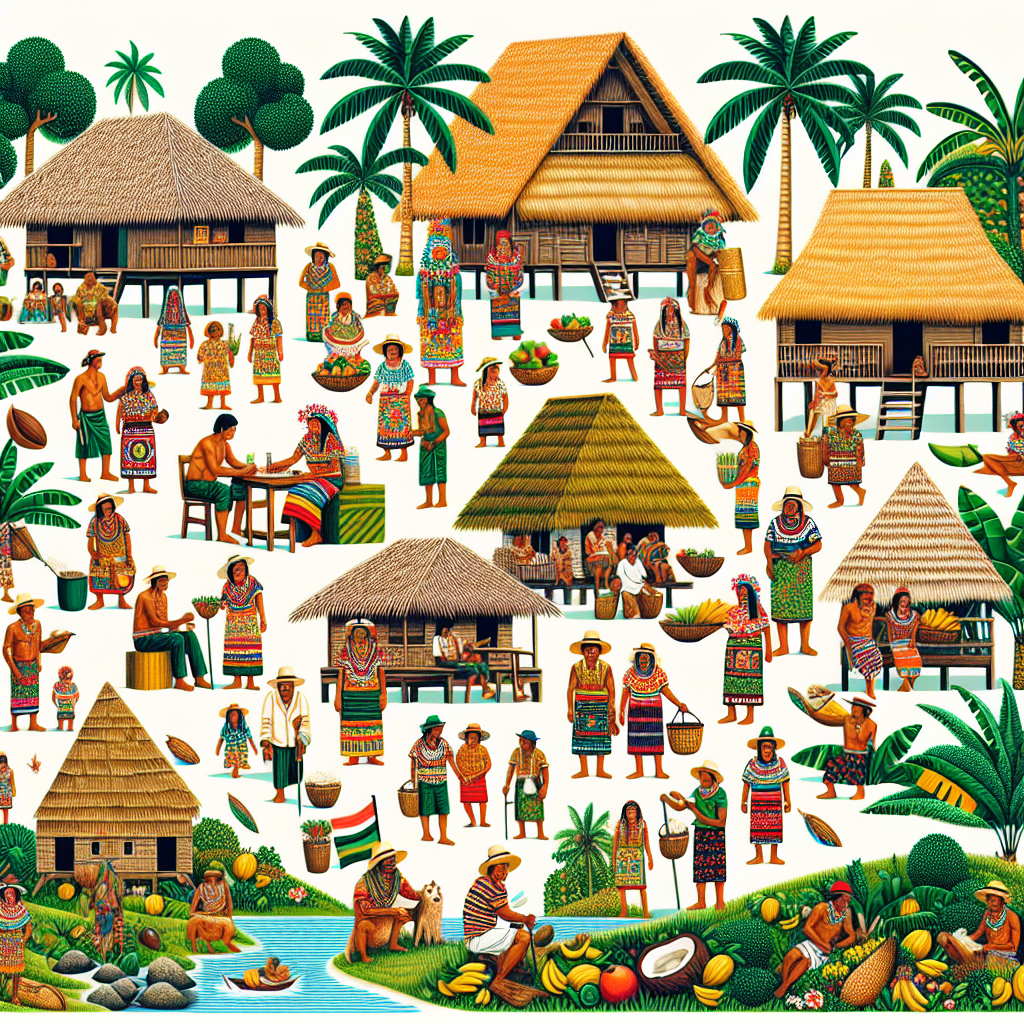Guna Community Relocates as Rising Sea Levels Transform Panama
The Guna community from Gardi Subdug Island off Panama's coast has been forced to relocate due to rising sea levels caused by climate change. About 300 families have moved to a new woodland settlement on the mainland. Panama's President called on wealthy nations to fulfill climate pledges to prevent further crises.

Rising sea levels due to climate change have forced an Indigenous Guna community to leave their homes on an island off Panama's coast that is fast disappearing. Some 300 families - 1,351 people - based in Gardi Subdug, a small Caribbean island a couple of kilometers off the Central American coastline, received keys on Wednesday to their new houses in a small woodland settlement on the mainland.
"I'm very happy, it feels like a dream," villager Victoria Navarro told an inauguration ceremony in her Guna dialect, translated by a Spanish interpreter. "We have been fighting for 14 years and it has finally come true." A 2021 report by the Intergovernmental Panel on Climate Change estimated that on current trends, average global sea levels could rise by more than a meter by the end of the century.
Panama, which bridges Central and South America, counts 386,000 people - nearly one in 10 - who live less than 10 meters above sea level, according to a recent U.N. report. Over 4% live less than five meters above the waves. Navarro asked the government to provide a health center in the new development, which houses 300 bungalows built in a clearing surrounded by lush green forest.
"Although Panama is one of seven carbon-negative countries, we are making this effort and would like developed countries to do the same because the greenhouse gas emissions they have produced are causing the climate crisis we are facing," President Laurentino Cortizo said at the community's ceremony. Panama absorbs more carbon than it emits due to its vast forest, according to the U.N.-initiated Climate and Clean Air Coalition.
Cortizo urged wealthy nations to honor pledges made under the 2015 Paris climate treaty. "Just like the Amazon, we have a green lung here in the Darien jungle, but what are developed countries doing to shift production from dirty to clean energy?" Cortizo said. "They have to do their job."
The Guna people, who live across Panama and neighboring Colombia, are mostly based in autonomous reservations on the San Blas Islands, a tropical archipelago with golden beaches and crystalline waters off Panama's northern Caribbean coast. The entire community is expected to move next week if weather allows for safe passage, in a joint effort by local leaders and the government. Children, disabled people and the elderly are set to take the first boats out of Gardi Subdug.
The community has requested permission to continue efforts to boost tourism to ensure the disappearing island is not forgotten. Besides working in fishing and agriculture, they also make handicrafts and have tour guides who run island visits. Across Latin America and the Caribbean, the U.N. has found that 41 million people live in low-lying areas - 6% of the region's inhabitants - and face growing risks from increasingly frequent flooding, storms surges and hurricanes, while many wealthy countries lag on their climate pledges.
(This story has not been edited by Devdiscourse staff and is auto-generated from a syndicated feed.)
ALSO READ
AAP Government Advocates for Dairy Farmers: Relief Amid Relocation Crisis
Wildfires Force Sports Events Relocation in Los Angeles
Gauhati High Court Bar Battle: Relocation Row in Assam
Wildfires Spark Relocation and Resilience in LA Asset Management Firms
National Talent Pools: The Relocation Conundrum










